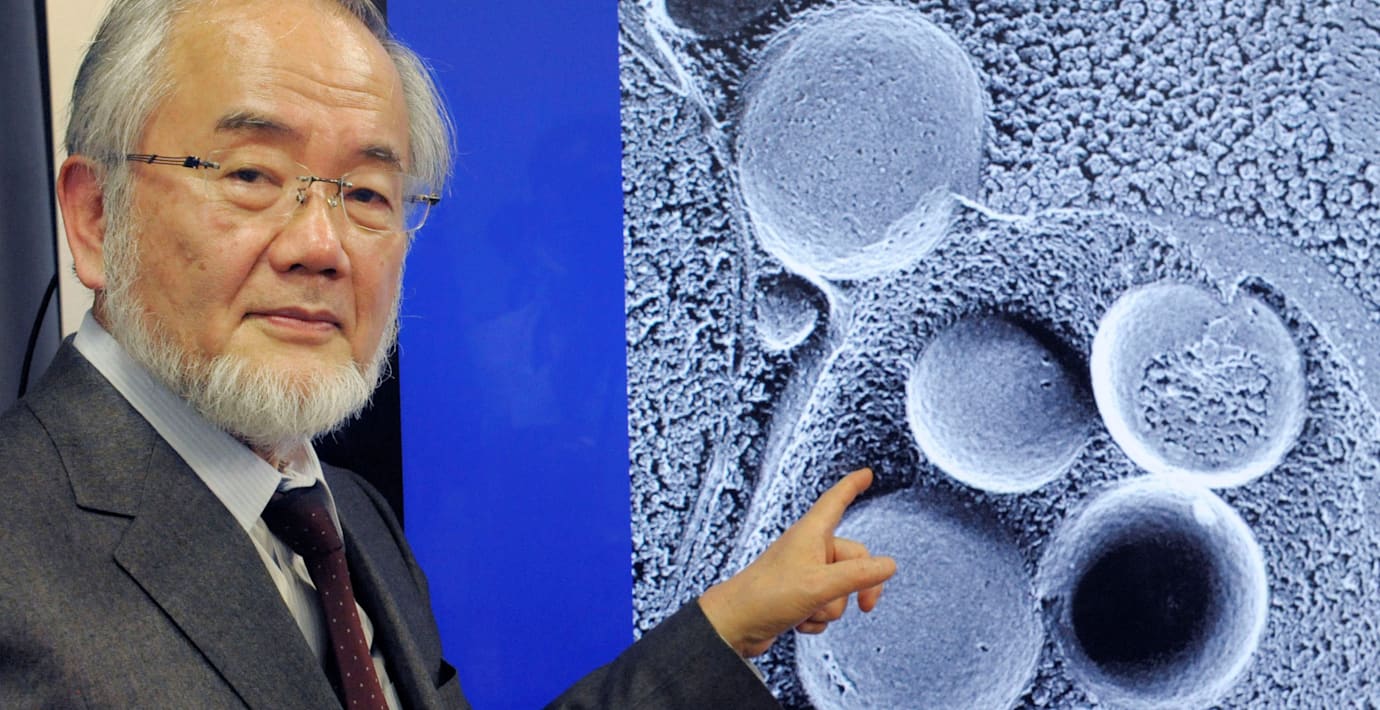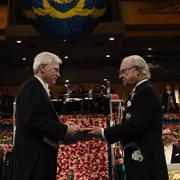
Nobelpris i medicin till japanen Yoshinori Oshumi
Årets Nobelpris i medicin eller fysiologi går till japanen Yoshinori Oshumi. Han får priset för upptäckter av mekanismer för autofagi, en process för nedbrytning och återvinning av cellernas egna beståndsdelar.
Förra året gick priset till tre forskare: William C Campbell, Satoshi Omura och Youyou Tu. De två förstnämnda fick priset för sina upptäckter rörande en ny terapi mot infektioner orsakade av parasitmaskar. Youyou Tu prisades för sin forskning som resulterat i en ny behandling mot malaria
bakgrund
Autofagi
Wikipedia (en)
Autophagy (or autophagocytosis) (from the Greek auto-, "self" and phagein, "to eat"), is the natural, destructive mechanism that disassembles, through a regulated process, unnecessary or dysfunctional cellular components.
Autophagy allows the orderly degradation and recycling of cellular components. During this process, targeted cytoplasmic constituents are isolated from the rest of the cell within a double-membraned vesicle known as an autophagosome. The autophagosome then fuses with a lysosome and the contents are degraded and recycled. Three different forms of autophagy are commonly described: macroautophagy, microautophagy and chaperone-mediated autophagy. In the context of disease, autophagy has been seen as an adaptive response to stress, which promotes survival, whereas in other cases it appears to promote cell death and morbidity. In the extreme case of starvation, the breakdown of cellular components promotes cellular survival by maintaining cellular energy levels.
The name "autophagy" was coined by Belgian biochemist Christian de Duve in 1963.
Omni är politiskt obundna och oberoende. Vi strävar efter att ge fler perspektiv på nyheterna. Har du frågor eller synpunkter kring vår rapportering? Kontakta redaktionen



